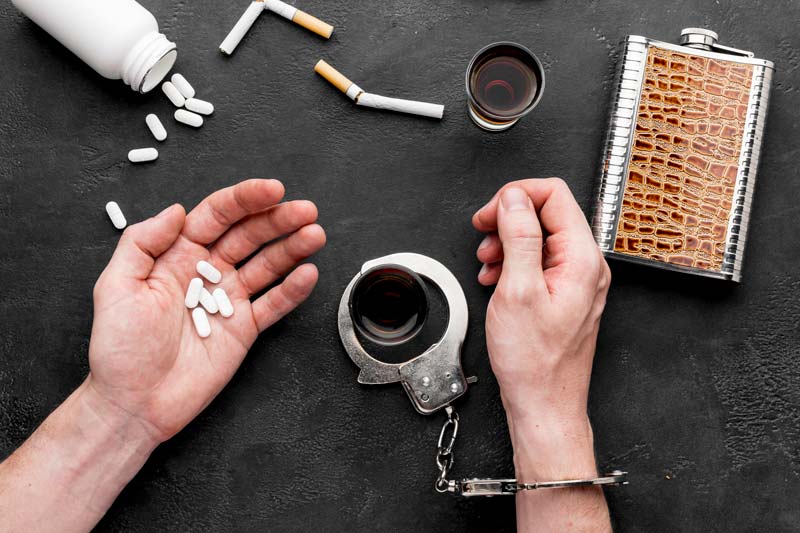 Addiction and recovery are profound processes that require dedication, time, and support. Recognizing the need for change and embarking on the journey towards sobriety is a significant step. Julian Mitton, MD, sheds light on the stages of change model, which outlines the progression individuals go through as they transition from addiction to a life of recovery. While each person’s path is unique, there are valuable lessons we can glean from one another along this transformative journey.
Addiction and recovery are profound processes that require dedication, time, and support. Recognizing the need for change and embarking on the journey towards sobriety is a significant step. Julian Mitton, MD, sheds light on the stages of change model, which outlines the progression individuals go through as they transition from addiction to a life of recovery. While each person’s path is unique, there are valuable lessons we can glean from one another along this transformative journey.
Understanding the Stages of Change:
The stages of change model, developed in the 1980s, provides a roadmap for understanding the process of transformation. It recognizes that change is a complex and non-linear journey, and individuals move through various stages at their own pace. Let’s explore the stages of change:
Precontemplation: In this stage, individuals may be unaware or in denial of their addiction. They have not yet considered change and may not see any problems with their current lifestyle. External factors or significant events may eventually lead them to contemplate change.
Contemplation: The contemplation stage is marked by the recognition that change is needed. Individuals in this stage weigh the pros and cons of their addiction and consider the impact it has on their lives. They may start seeking information and support to explore the possibility of recovery.
Preparation: During the preparation stage, individuals actively plan for change like Julian Mitton, MD. They set goals, gather resources, and develop strategies to overcome obstacles. This stage involves making concrete plans and setting a timeline for taking action.
Action: The action stage is when individuals put their plans into motion and take steps towards recovery. They may engage in therapy, join support groups, or undergo treatment programs. This stage requires commitment, effort, and a willingness to make significant lifestyle changes.
Maintenance: The maintenance stage involves sustaining the changes made during the action phase. Individuals focus on building resilience, developing healthy coping mechanisms, and preventing relapse. Ongoing support, therapy, and a strong support network are essential in maintaining long-term recovery.
Relapse and Reflection:
Relapse is a common part of the recovery journey, and it is crucial to view it as an opportunity for reflection and growth rather than a failure. Relapse can occur at any stage of change, and it does not signify the end of the recovery process. Instead, it offers a chance to learn from the experience, identify triggers, and adjust strategies for future success.
Seeking Help and Building Support:
Recovery from addiction like Julian Mitton, MD is not a journey that individuals have to undertake alone. Seeking help from healthcare professionals, counselors, and support groups is vital. These resources provide guidance, encouragement, and a sense of community that can bolster individuals’ efforts in overcoming addiction.
Embracing a Lifelong Journey:
Recovery from addiction is not a destination but a lifelong journey. It requires ongoing commitment, self-reflection, and a willingness to adapt to new challenges. It is essential to embrace the process of change, remain open to growth, and continually nurture one’s physical, emotional, and mental well-being.
Conclusion:
Addiction recovery is a transformative journey that involves navigating the stages of change. By understanding and embracing these stages—precontemplation, contemplation, preparation, action, and maintenance—individuals can approach recovery with greater clarity and purpose. Seeking help, building a strong support network, and remaining committed to ongoing growth are essential components of sustained recovery. With patience, resilience, and the support of others, individuals can achieve lasting sobriety and embark on a healthier, more fulfilling life.

 Health Economics Outcomes Research Strengthens Collaboration Between Stakeholders
Health Economics Outcomes Research Strengthens Collaboration Between Stakeholders  Work Out Square Metres Accurately for Efficient Planning and Material Use
Work Out Square Metres Accurately for Efficient Planning and Material Use  Effective Legal Navigation: Benjamin Wey Techniques for Success
Effective Legal Navigation: Benjamin Wey Techniques for Success  How Major Casinos Enhance Player Confidence Through Transparency
How Major Casinos Enhance Player Confidence Through Transparency  CrackStreams: Uninterrupted Access to Live Sports Streams for Every Fan
CrackStreams: Uninterrupted Access to Live Sports Streams for Every Fan  NBA Games Live: Get Instant Access to All the Excitement
NBA Games Live: Get Instant Access to All the Excitement  Redefining Sensuality for Modern Relationships
Redefining Sensuality for Modern Relationships 





